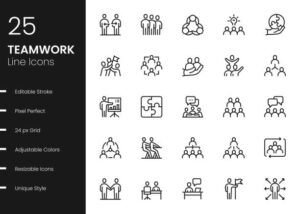
What’s Happened
I have published various articles on the rights of employees to work from home. (WFH). I still subscribe to this. Many employees right across Australia have got the benefit of a better work / life balance. Reduced travel cost and stress. However what suffers comes and into question, the isolation that many are incurring. Some employees are suffering social anixety and developing a stutter for example. The Power of relationships cannot be overstated. Unfair dismissals and workplace harassment has increased, as employers lose contact with it’s employees
In today’s fast-paced corporate world, relationships at work have become more important than ever. Gone are the days when employees were expected to be solely focused on their tasks and isolated from their colleagues. Organisations now recognize the significance of fostering healthy connections among their employees. In this article, we will explore the value of relationships at work from an employee’s perspective and how they contribute to a fulfilling and productive work environment.

Building Trust and Collaboration:
Strong relationships form the foundation of trust within teams. When employees have faith in one another’s abilities and intentions, they can collaborate more effectively. Trust encourages open communication, idea-sharing, and problem-solving, leading to innovative solutions and increased productivity. Organisations that prioritize relationship-building activities create a supportive atmosphere where individuals feel comfortable taking risks and exploring new ideas.
Enhancing Job Satisfaction:
Employees are more likely to be content with their jobs when they have supportive coworkers. Employees are more likely to be invested in their work and motivated when they feel a sense of community and friendship among their coworkers. A supportive work environment fosters happiness and reduces stress levels, leading to improved overall well-being. Strong relationships with colleagues also make the workplace more enjoyable, encouraging individuals to look forward to coming to work each day.
Boosting Career Development:
Meaningful relationships at work can also play a pivotal role in career growth. Engaging with colleagues and building professional networks expands one’s knowledge, exposes them to new perspectives, and opens doors to valuable opportunities. Mentoring relationships, in particular, provide guidance and support, helping employees develop new skills and advance their careers. Through networking and collaborating with others, employees can gain valuable insights and expand their professional horizons. Face time with your boss is important.
Effective relationships at work promote healthy communication channels and facilitate conflict resolution. When employees have established a foundation of trust and respect, they can address conflicts in a constructive manner, leading to quicker resolutions. Strong relationships also encourage active listening, empathy, and understanding, reducing misunderstandings and fostering a positive work atmosphere.
Creating a Supportive Work Culture:
Organisations that prioritize relationships foster a supportive work culture that encourages personal and professional growth. Employees’ willingness to take chances, share ideas, and contribute to the team’s success increases when they see that their peers and superiors have their backs. This positive work culture attracts and retains top talent, contributing to the overall success and competitiveness of the organisation.

Value of relationships at work
Sense of Belonging:
Strong relationships at work create a sense of belonging and community. When employees feel connected to their colleagues, they are more likely to be engaged and committed to their work. A supportive work environment where individuals feel valued and included fosters a sense of belonging, leading to increased job satisfaction and a higher sense of overall fulfillment.
Encouragement and dedication to work are fostered by having supportive coworkers. Individuals are more likely to feel driven to contribute to the success of the team when they have great ties with their peers. The support and camaraderie found in such relationships create a positive work atmosphere that drives individuals to go the extra mile, leading to increased productivity and job satisfaction.
Emotional Support:
Relationships at work provide emotional support during both personal and professional challenges. When employees have trusting relationships with their colleagues, they can turn to them for guidance, encouragement, and a listening ear. Knowing they have a support system in the workplace helps employees navigate difficulties, reduce stress, and maintain their overall well-being.
Relationships built on trust and open communication contribute to a productive work environment. When employees trust their colleagues, they feel more comfortable sharing ideas, providing feedback, and taking calculated risks. Trust enhances effective communication, reduces misunderstandings, and fosters a culture of transparency and accountability.
Collaboration and Teamwork:
Strong relationships foster collaboration and teamwork within organisations. Employees are more willing to work together, exchange information, and pool resources when they have good working connections with those around them. Collaboration encourages the exchange of ideas, leads to more innovative solutions, and boosts overall productivity.
Relationships at work provide opportunities for knowledge sharing and learning. Engaging with colleagues allows employees to tap into a diverse range of skills, experiences, and perspectives. Through discussions, mentorship, and collaboration, employees can expand their knowledge base, learn new approaches to problem-solving, and enhance their professional growth.
Career Development and Opportunities:
Relationships at work can open doors to career development and growth. Building connections with colleagues and mentors provides access to valuable opportunities such as new projects, collaborations, and professional networks. Strong relationships can lead to mentorship, sponsorship, and exposure to different roles, accelerating career advancement.
In summary, relationships at work from an employee’s perspective contribute to a fulfilling and productive work environment by fostering a sense of belonging, providing emotional support, enabling collaboration and teamwork, facilitating knowledge sharing and learning, building trust and effective communication, fueling motivation and engagement, and creating opportunities for career development. These factors combined enhance overall job satisfaction, well-being, and organizational success.

Case Studies and innovation
Acme Inc.
Acme Inc., an international company with teams across different countries, faced challenges in communication and collaboration due to cultural differences and time zone variations. To combat this, virtual coffee breaks and team lunches were introduced as regular virtual collaborative tasks where employees could connect on a more personal level. These activities fostered stronger relationships, improved communication, and boosted collaboration among team members, resulting in increased efficiency and a more cohesive global team.
Bright Solutions
Bright Solutions introduced a mentoring program to support professional development and strengthen relationships within the organization. One notable example involved Amy, a young software engineer, who was paired with a seasoned developer, Mark. Through regular mentoring sessions, Mark provided guidance, shared industry insights, and helped Amy navigate challenges in her career. The mentoring relationship not only accelerated Amy’s growth but also fostered a sense of camaraderie and collaboration within the development team.
TechPro Solutions
TechPro Solutions, a technology consulting firm, experienced a conflict between two project teams working on a critical client project. The conflict impacted productivity and team morale. To address the issue, the company facilitated a team-building workshop focused on improving communication and conflict resolution skills. By encouraging open dialogue and understanding each team’s perspective, the employees built stronger relationships and learned how to resolve conflicts constructively. The teams successfully reconciled their differences, leading to a harmonious work environment and improved project outcomes.

InnovateTech
InnovateTech, a startup known for its innovative products, emphasized building relationships and a supportive work culture from the outset. The company organized regular team-building activities, social events, and cross-departmental collaboration initiatives. By fostering strong relationships among employees, InnovateTech created an environment where individuals felt comfortable sharing ideas, collaborating on projects, and supporting one another. This culture of support and camaraderie contributed to increased employee satisfaction, creativity, and overall organizational success.
Global Logistics
Global Logistics underwent a major restructuring to adapt to changing market conditions. The process required significant changes in roles, responsibilities, and reporting structures, which caused uncertainty and resistance among employees. To address these challenges, the company focused on building trust through transparent communication, regular town hall meetings, and one-on-one discussions. By nurturing relationships and involving employees in decision-making processes, Global Logistics successfully managed the change, minimized resistance, and created a more cohesive and engaged workforce.
Relationships at work are not just a byproduct of spending time with colleagues; they are an integral part of a fulfilling and successful career. Building and nurturing strong connections can enhance trust, collaboration, job satisfaction, career development, and communication within an organization. By recognizing the importance of relationships at work, both employees and organizations can create an environment where individuals thrive, leading to increased productivity, innovation, and overall success.

For Employees
Take the initiative to get to know your colleagues on a personal level. Engage in conversations, ask about their interests, and be genuinely interested in their well-being. Small gestures like offering help or acknowledging their achievements can go a long way in building strong relationships. Be present and attentive when engaging in conversations. Demonstrate empathy, show understanding, and avoid interrupting others. Active listening fosters deeper connections and helps in building trust and rapport with colleagues.
Try to find ways to work with people you work with but who may be on a different team or in a different department. Connecting with others, exchanging ideas, and gaining exposure to other viewpoints are all facilitated through participation in team or cross-departmental projects. Offer support and assistance to your colleagues whenever possible. Celebrate their successes, provide constructive feedback, and lend a helping hand when they face challenges. Being supportive creates a positive work environment and strengthens relationships.
Address conflicts or disagreements in a respectful and constructive manner. Practice effective communication, active listening, and seek win-win solutions. Resolving conflicts promptly and professionally helps maintain healthy relationships at work.
Employers need to:
Create opportunities for employees to interact and build relationships outside of formal work settings. Organize team-building activities, social events, and workshops that promote collaboration, communication, and trust among employees. Create an atmosphere where teamwork is highly valued. Motivate your staff to collaborate on projects, offer constructive feedback, and recognize the efforts of their colleagues. Recognize and reward collaborative efforts to reinforce the importance of relationships in the workplace.
Develop formal mentoring programs to connect experienced employees with junior staff. Mentoring relationships provide guidance, support, and valuable learning opportunities, promoting professional development and relationship-building within the organization. Create a setting where people feel safe talking to one another freely and openly. Establish channels for employees to share their thoughts, concerns, and ideas. Regularly provide feedback and create opportunities for dialogue between employees and management.
Managers and leaders should exemplify the importance of relationships at work. Encourage leaders to build strong relationships with their teams, promote group think, and actively listen to employees’ perspectives. When leaders prioritize relationships, it sets a positive tone and encourages others to follow suit.

Conclusion to: The Power of Relationships at Work
In today’s dynamic work landscape, relationships at work play a vital role in shaping a fulfilling and productive environment from an employee’s perspective. The value of these relationships cannot be overstated, as they contribute to various aspects of an individual’s professional journey and overall well-being. From a sense of belonging to emotional support, positive relationships create a sense of community and a supportive network within the workplace. When workers have a sense of belonging and appreciation, they are more likely to give their all to their jobs. Because of this, production rises and happiness levels rise as a result.
Group think and teamwork thrive in an atmosphere where relationships are strong. The exchange of ideas, knowledge sharing, and collective problem-solving become the norm when colleagues have established rapport and trust. The resulting synergy and innovation drive productivity and contribute to the success of both individuals and the organization as a whole. Relationships at work also provide opportunities for personal growth and learning. Engaging with colleagues who possess diverse skills and experiences opens doors to new perspectives and knowledge. These interactions facilitate professional development, expand skill sets, and provide individuals with the tools to advance their careers.
Employees want to feel trusted
Trust and effective communication are foundational elements of relationships at work. When employees feel trusted and have open lines of communication with their colleagues, they can share ideas freely, provide feedback, and work collaboratively. This fosters a culture of transparency, accountability, and mutual respect, ultimately contributing to a productive work environment. Moreover, positive relationships at work motivate and engage employees. The support, encouragement, and camaraderie found in these relationships inspire individuals to go above and beyond in their work. The resulting motivation leads to increased productivity, higher job satisfaction, and a sense of purpose.
In conclusion, relationships at work are essential for employees to thrive in their careers. From building a sense of community and emotional support to fostering collaboration, trust, and personal growth, these relationships contribute significantly to a fulfilling and productive work environment. By recognizing and investing in relationships at work, both individuals and organizations can unlock the full potential of their workforce, leading to greater success and well-being.
Give us a call, all Fair Work Commission matters. Feeling you are being forced to resign, get advice first
Ring 1800 333 666, confidential prompt, free advice






